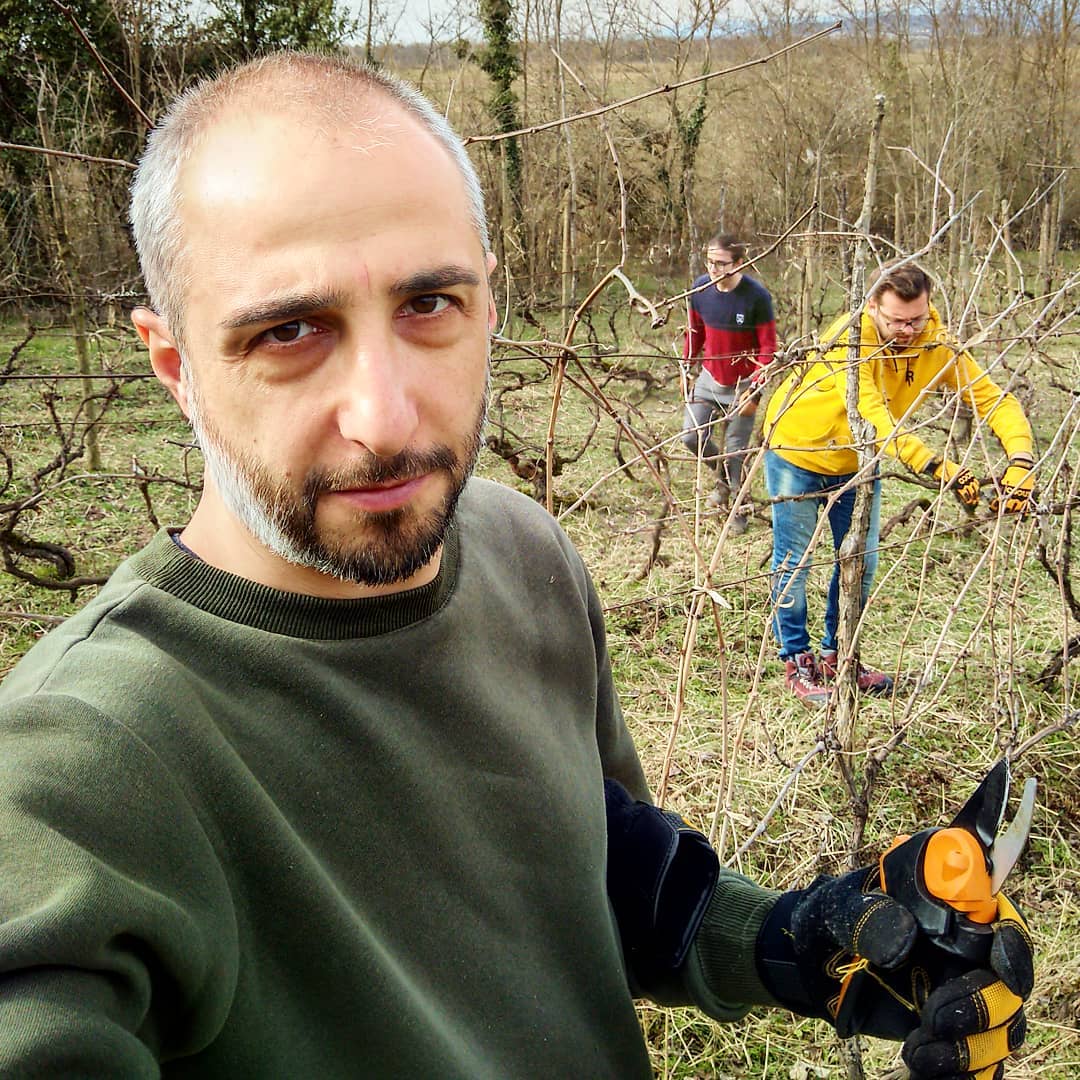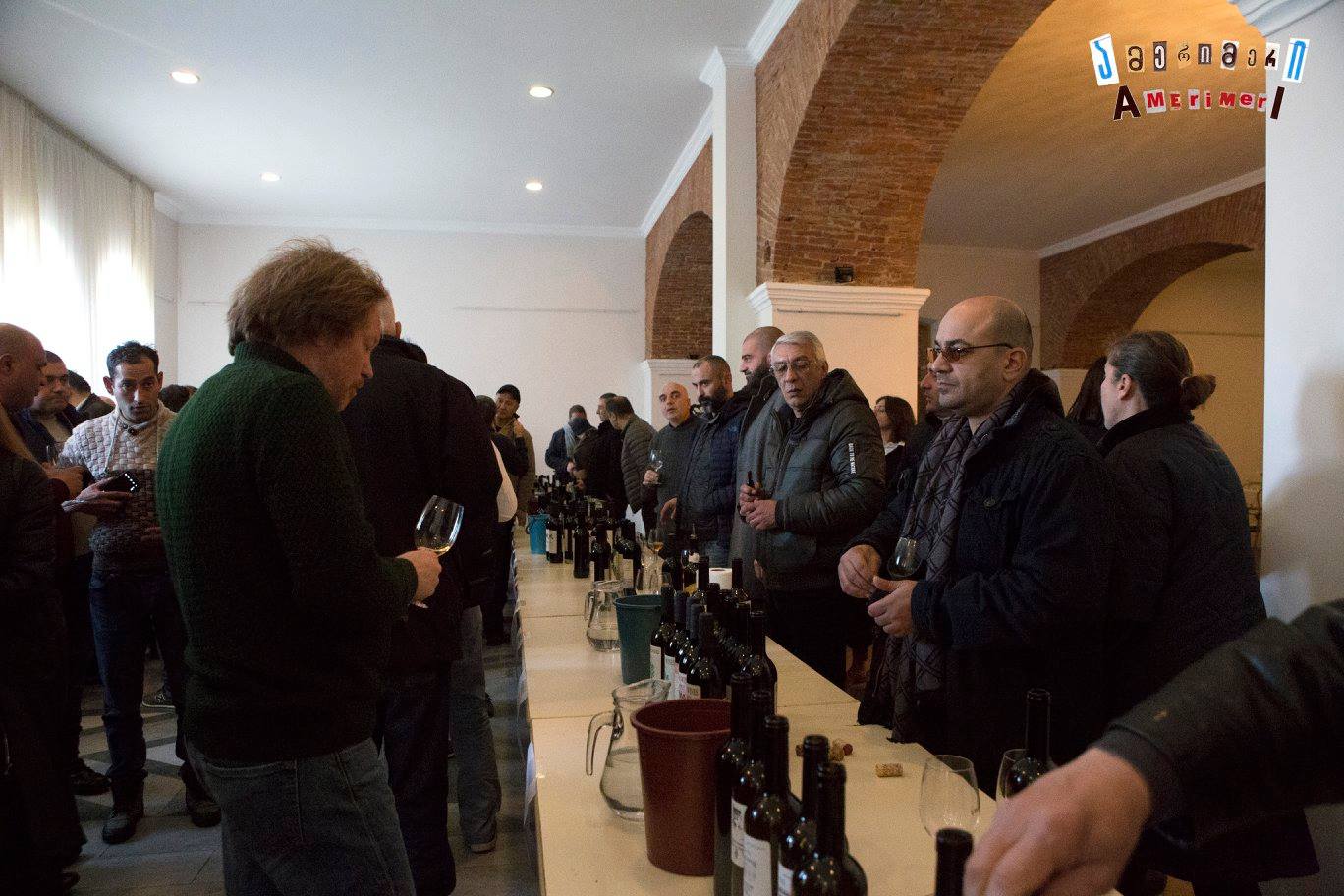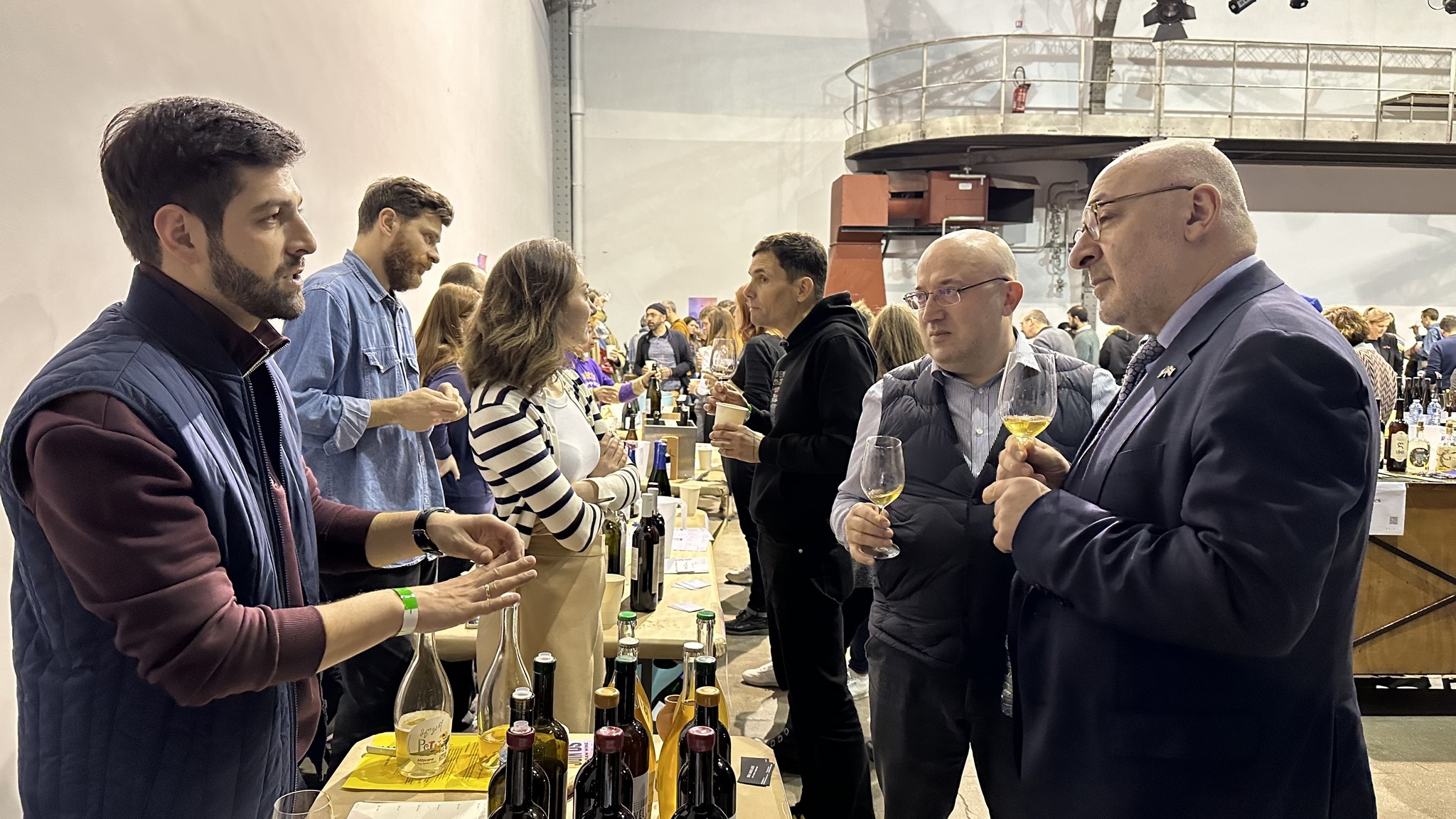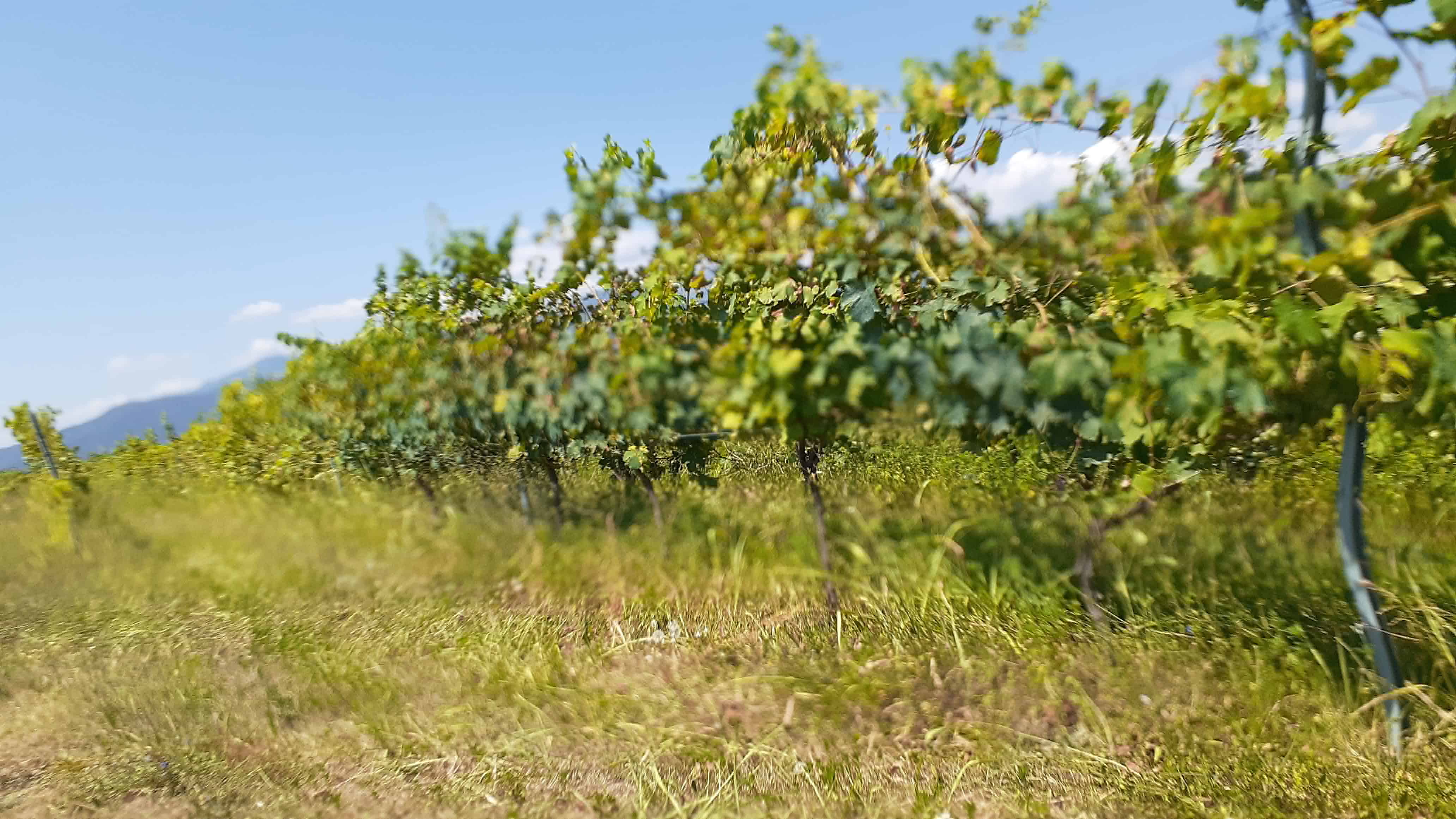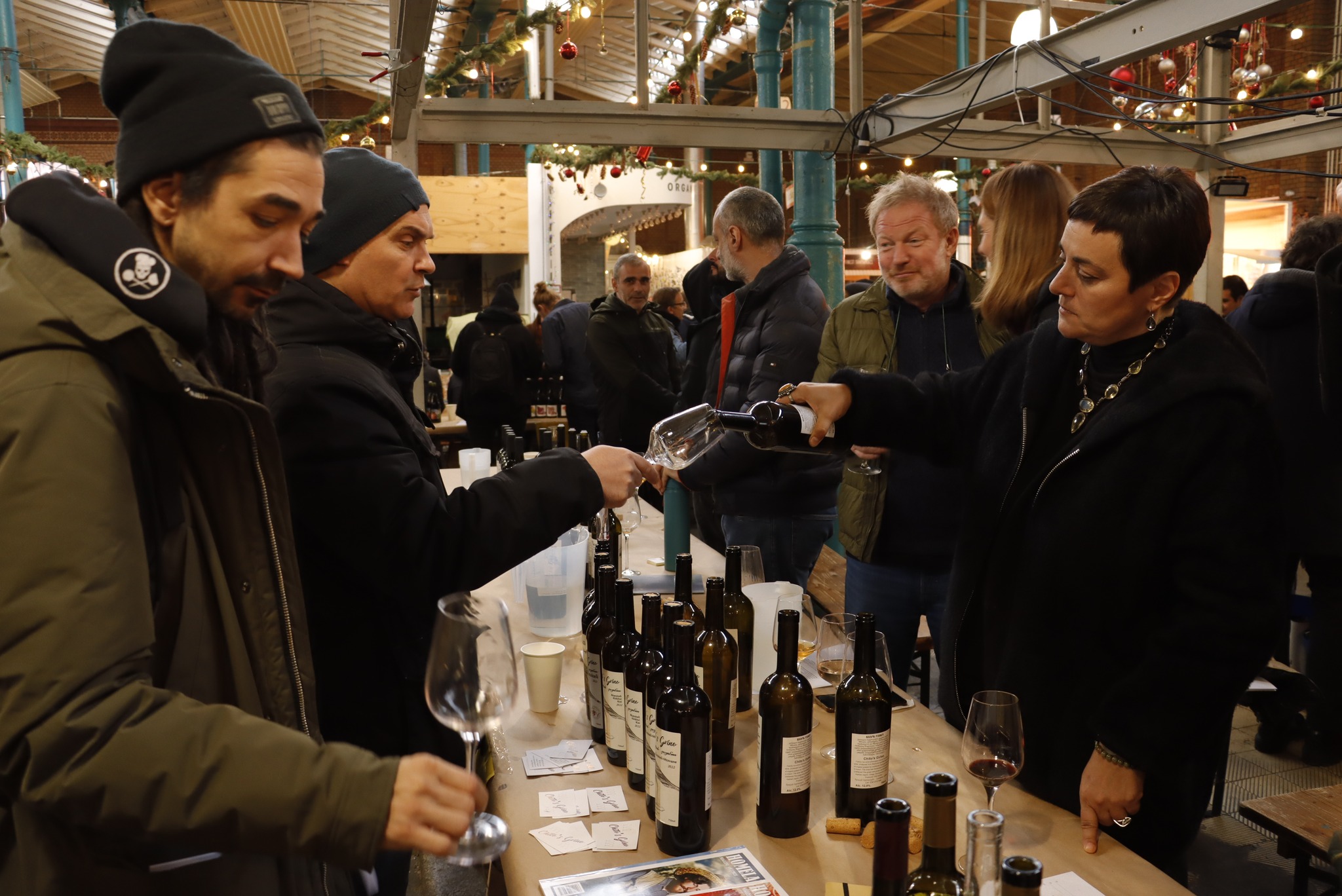News . 14-03-2022
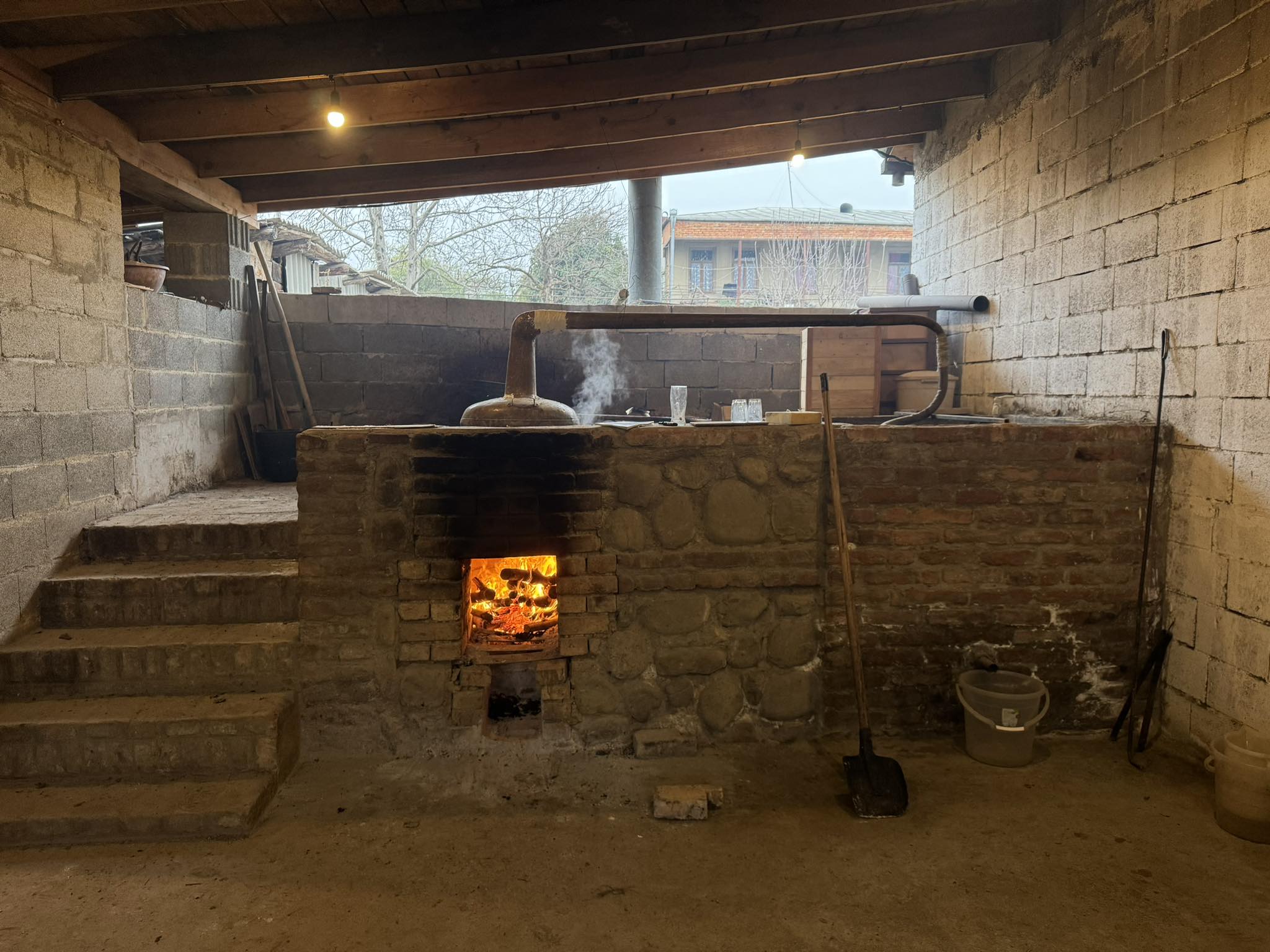
Chacha production - a challange for small wineries
You will hardly find a family cellar in Georgia that does not distill the traditional Georgian high-alcohol drink - “Chacha” - in addition to making wine. After all, it would be a waste to throw away the precious residue of wine - pomace - when you know that it can produce excellent “Chacha”. However, only a few small wineries produce this drink for sale, because of the exceptionally high tax that the state imposes on the “Chacha” excise. Moreover, it is not easy for winemakers to take the distillation work seriously and to manage both activities simultaneously.
In recent years, new generation (mostly Italian) distillation machinery has entered Georgia. This has resulted in a much cleaner and well-filtered drink. However, small family wineries still use ancestral copper stills. In this case, it is important that master distiller is skilled enough to serve a good quality drink.
Dato Kapanadze, a winegrower and a member of the Natural Wine Association, told us that it is quite difficult to work on the distillation process, to prepare the necessary documents, to comply with the laws and to make a profit. He added that the laboratory, excise duty, VAT greatly increase the cost of the drink. According to him, his 0.5-liter bottle of “Chacha” should be priced at least 30 GEL to make a small profit. Therefore, he decided not to produce “Chacha” in bottled form.
Dato Kapanadze, “Tklapis Winery”: “In Zestafoni, I have a fairly high-quality distillation equipment in my cellar that I ordered from Europe, but I am first conducting experiments and making both Chacha and cognac spirit for personal consumption. I know well the people who started producing “Chacha” in bottles and, as they say, they faced problems until the end. Reality has shown that it is hard for small wineries to work legally, and it is not easy to raise awareness of the drink. Only friends and acquaintances buy drinks from them, and that’s why they have very low sales.”
According to Dato Kapanadze, tax authority employees have recently become active on social networks, and they directly provoke distillers in order to fine them: “For example, a tax employee writes in the Facebook group of distillers that he is looking for a high-quality high-alcohol drink and will not care about its “lack of proper documents”. At this time, many people have unsold “Chacha” and eagerly offer the “Chacha” they have accumulated over the years. Then they will meet this man, they will find illegal alcohol or Chacha, they will arrest him and maybe even put him in jail, because according to the law, a criminal case will be initiated for possessing illegal alcohol above the value of 1500 GEL. Recently, many such cases have been reported. Most of them try to work legally, but some can’t resist the temptation and get into big trouble.”
Those who have time, storage space and finances can also age Chacha in oak barrels. Those who are in financial difficulty - bottle it directly or try to sell it by the liter.
It is also important what quality and by what method the distilled “Chacha” reaches the consumer. The members of the Natural Wine Association use natural methods when distilling Chacha, which means that they do not add any flavorings or essences to the drink. Therefore, such “Chacha” has a truly natural taste.
Another member of the Natural Wine Association, Davit Mosulishvili, founder of “Dano” winery, makes Chacha in a stainless steel winery in the village of Khornabuji in Kakheti. He uses various natural means to enrich it. He does not sell Chacha yet, but he hopes to sell it in the future.
Davit Mosulishvili, “Dano” Winery: “We have a stainless steel kettle in our house, where we make Chacha in addition to wine. It is heated on fire, of course, and we remove the head and the tail at the end - that is, we discard the spirit and the Saya (Rakh). We store the distilled drink in glass jars. In some we have added tarragon and mint, in others - oak chips. I’m also going to add a mulberry heart. We do not sell at this stage. However, we will probably offer it to the market in the near future.”
Niko Beriashvili, the founder of “Niabi Marani” located in Kartli, recently started distilling Chacha for sale. Niko makes “Chacha” in a traditional 80-liter copper pot and adjusts the strength of the drink to 40 degrees. He is a novice in this field and has no experience with Chacha aging yet.
Niko Beriashvili, “Niabi Marani”: “We decided to distill Chacha for sale this year, when we had a good harvest of grapes. While pressing the grapes, we boil the must with pomace and after a month we drain the already fermented wine. We put Chacha in a separate container and store it. We make it traditionally with an 80-liter copper pot. We remove the “head” at the end so that essential oils and harmful substances do not pass into the liquor. Finally, the alcohol content in Chacha will reach about 40-42 degrees. Unfortunately, we haven’t tried aging yet, but I think we will be able to do that soon.”
Despite the many problems in the field, the production of Chacha in small Georgian wineries (even for personal consumption) did not stop even in the hardest times. The traditions of making Chacha have been preserved even in those places where viticulture has never been developed. It is important that “Chacha” is a name protected by the legislation of both Georgia and the European Union, and only Georgia has the exclusive right to produce a high-alcohol drink under this name. Therefore, the state should support the development of this traditional Georgian drink, which should first of all be reflected by improving the tax policy.
Levan Sebiskveradze
